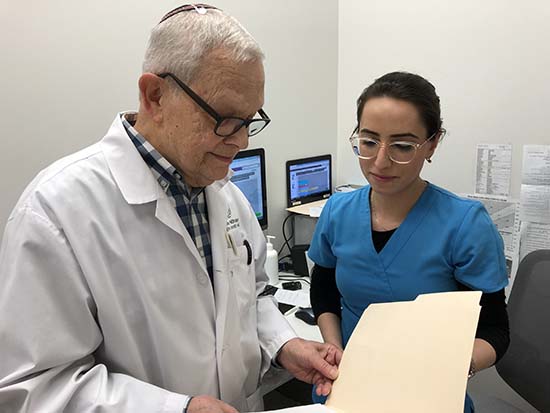Don't sit on Irritable Bowel Syndrome
IBS is a chronic gastrointestinal disorder that presents itself via symptoms of abdominal pain, bloating, and altered bowel habits of diarrhea or constipation, and it is more prevalent in patients under 50. One in 10 people struggles with IBS, and women are almost twice as likely to suffer from this uncomfortable – yet common – disorder.

While only a small number of IBS sufferers display severe signs and symptoms, it is important not to dismiss this chronic gastrointestinal disorder that can require long-term management. Getting past the social and often work-related stigma that can accompany this disease is a tough task for patients, who often see their initial worries dismissed despite the high impact of IBS on their quality of life.
“There are a number of messages that are echoed to patients following a negative evaluation, starting with ‘nothing is seriously wrong so just learn to live with it.’ But people with IBS suffer from a lifelong preoccupation over a disorder that certainly affects productivity and quality of life,” says Dr. Seymour Mishkin, a member of the McGill University Health Centre (MUHC) Gastro-intestinal (GI) Division.
How do you diagnose IBS? There are diagnostic criteria which strongly suggest the presence of IBS by history alone that include: abdominal pain and bloating associated with altered bowel habits of diarrhea or constipation in the absence of “alarm features.” Dr. Mishkin says “flags should go up” justifying additional investigation if there is evidence of weight or blood loss as well as anemia associated with iron, and/or B12 deficiency. When recurrent abdominal pain and diarrhea awaken you from your overnight slumber, it is time to see your family physician.
Triggers for IBS can include reactions to certain foods, whether they are spicy, contain dairy, beans, or legumes, or various sugars such as lactose, fructose or sorbitol which are poorly absorbed by a significant number of patients. The unabsorbed sugar(s) is metabolized by the patient’s intestinal flora with the release various gases and other metabolites that are associated the above mentioned symptoms.
“Common remedies that can be tried include dietary modifications, simethicone to reduce the bloating, probiotics as well as other measures to address stress and overall mood can be helpful,” says Dr. Mishkin, an Associate Professor of Medicine at McGill University who advises patients that suspect they have IBS to first reach out to their family physician with their concerns.
FACT BOX (source: International Foundation for Functional Gastrointestinal Disorders)
- IBS affects over 750 million people worldwide
- Patients restrict their activities on average 73 days per year
- Average of six years passes from symptoms to diagnosis
- Less than 50% of IBS patients seek medical care